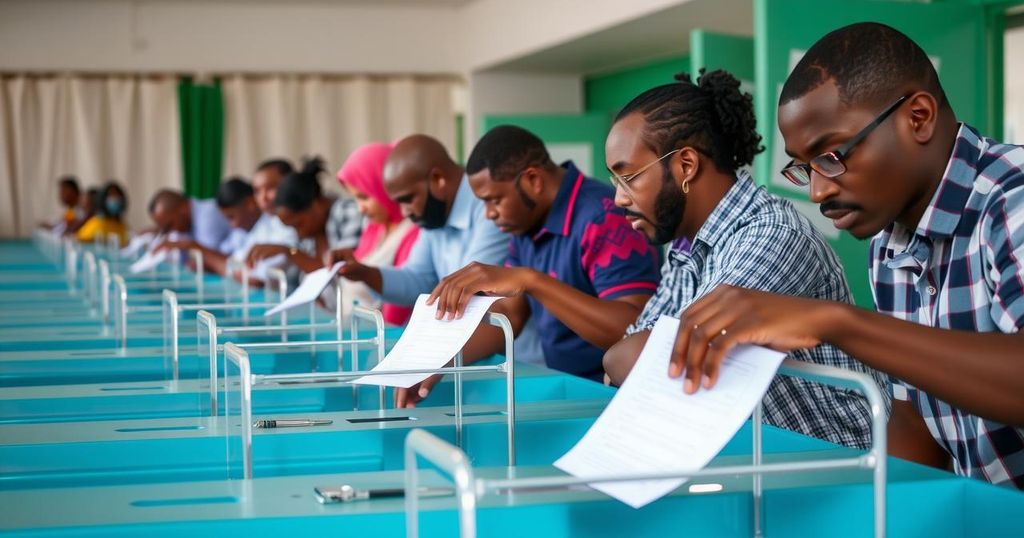Comoros Elections Amid Opposition Boycotts and Transparency Concerns
Comoros held elections for lawmakers amidst widespread opposition boycotts, citing transparency concerns. Nour El-Fath Azali, son of President Azali Assoumani, is a key candidate. Observers noted delays and improvised voting arrangements, raising fears about voter privacy. The ruling CRC party is expected to dominate again, with a second round of voting set for February 16, 2024.
On Sunday, the Indian Ocean nation of Comoros conducted elections to select lawmakers amid significant opposition boycotts citing concerns over transparency. Nour El-Fath Azali, the 39-year-old elder son of President Azali Assoumani, is contesting for a position in a constituency near the capital, Moroni. Reports indicated that several polling booths faced delays due to insufficient electoral materials, with observer James Burns noting the improvised arrangements that included one booth set up merely with two panels around a table, compromising voter privacy.
Nour Azali’s appointment as secretary general earlier this year has led critics to assert that he now holds powers akin to a de facto prime minister, including the authority to endorse ministerial decrees. His father, Azali Assoumani, a former military ruler, has been in power since a coup in 1999 and was reelected in January 2024, an election marred by allegations of fraud and subsequent violence.
Amidst concerns of a lack of constructive opposition, Azali expressed gratitude towards those candidates partaking in the elections and emphasized the need for an active opposition, declaring, “Thank God, since the beginning of the campaign there has not been any trouble.” However, many opposition members are contesting to prevent a repeat of the 2020 legislative vote boycott that rendered their influence negligible. With 33 parliamentary seats at stake, the ruling Convention for the Renewal of the Comoros (CRC) is expected to retain a commanding presence, particularly in constituencies where there is no opposition. A second voting round is scheduled for February 16, 2024, to finalize the electoral results.
The political landscape in Comoros has been increasingly strained, particularly following the re-election of President Azali Assoumani in January 2024, when he garnered 57% of the vote amidst widespread allegations of electoral fraud. The opposition’s dissatisfaction culminated in calls for boycotts as they contend that the electoral process lacks integrity and transparency. The latest elections are pivotal as they come off the back of a heavily criticized legislative vote in 2020 and highlight the ongoing power struggle within the nation. The political dynamic further complicates with the recent elevation of President Azali’s son, Nour, into a significant administrative position, provoking concern among critics of dynastic political transitions. Given these tensions, the latest elections reflect both a continuation of Azali’s enduring influence and the precarious position of the opposition, which is striving to regain footing after previous electoral setbacks. The coming weeks will determine if the elections will facilitate any semblance of democratic representation or if the CRC will solidify its control over the parliamentary landscape, rendering opposition efforts moot.
In summary, the recent elections in Comoros occur amidst a tense political climate, characterized by opposition boycotts citing transparency issues and accusations of electoral manipulation. Nour El-Fath Azali’s candidacy adds a new layer to the prevailing political dynamics as his father’s administration faces scrutiny over its governance practices. This electoral process represents a critical juncture for Comoros’s political future, especially with the impending second round of voting. The outcomes will likely shape the governance landscape and the viability of a constructive opposition in the years to come.
Original Source: www.arabnews.com




Post Comment